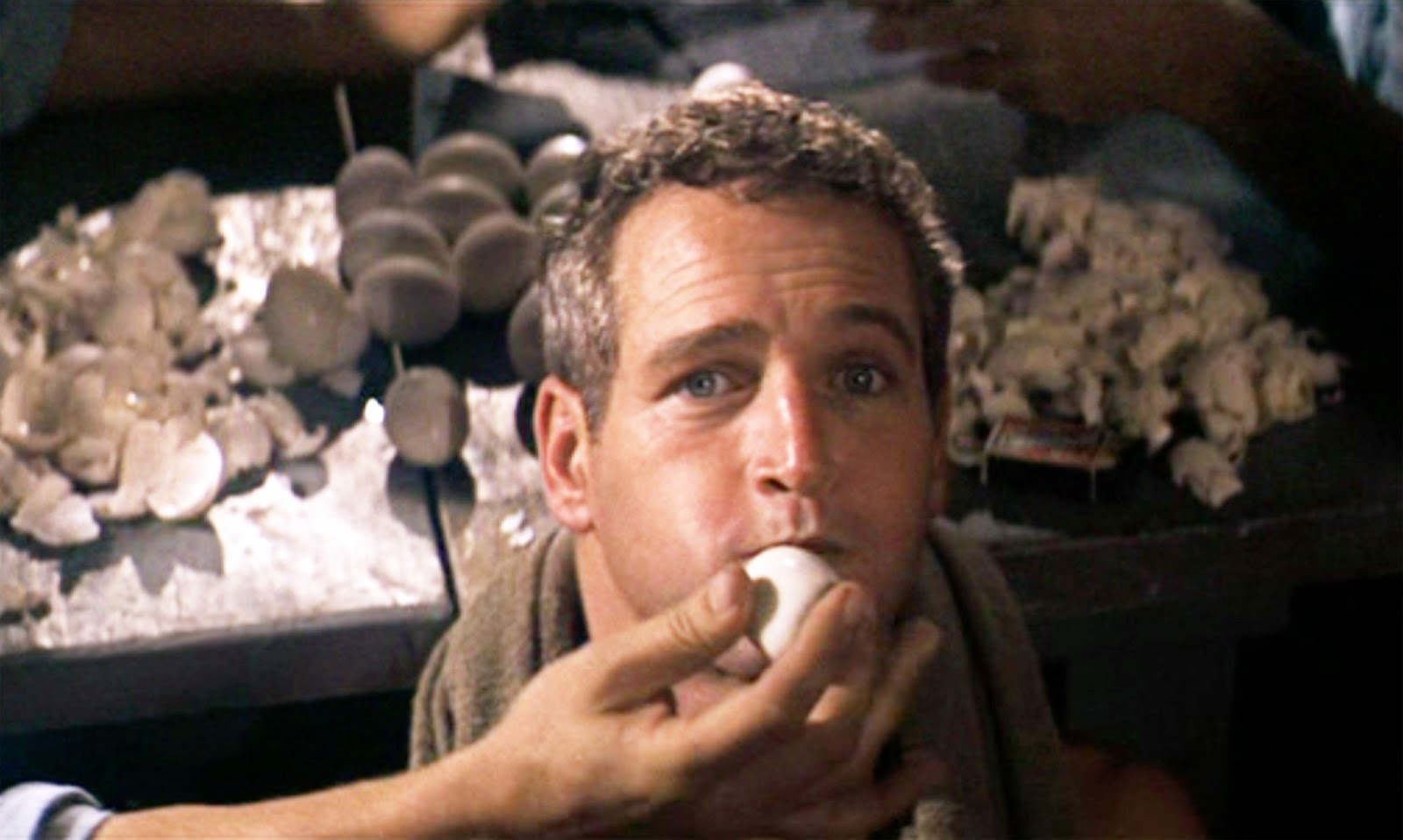
Rarely are critics and filmgoers in complete agreement in terms of which films are the best. And although no film has reached a total consensus of cinematic perfection, a few films come close. Rotten Tomatoes has for years let critics review all kinds of films, certifying the “best of the best” with a so-called fresh status. Of these films, who critics have agreed are great films, even less have gained the total consensus from film critics, reaching the 100% “fresh” mark.
However, a few films have received a 100% score through the years, and although classics such as “12 Angry Men” (1957) and “Citizen Kane” (1941) have a well-deserved place in between these ranks, this list will try and focus on some of the films that are rated 100% fresh, and therefore are classics in their own right, but are still somewhat less known to mainstream audiences.
Lastly, the list will hopefully also underline the variety of genres, release dates, and general artistic expression the films that receive praise can have, and how this is a true testament to the beauty of different tastes, but also the unanimous approval of great cinema.
10. Greed (1924)
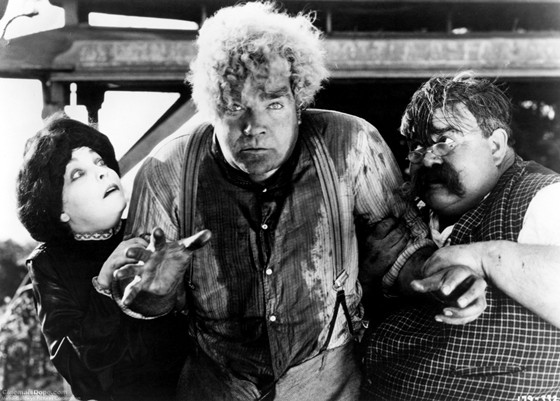
“Greed” is an American silent film from 1924 with an original cut of about 8 hours. This would probably seem like quite a tough viewing for the average filmgoer, and still, to this day, the film has a perfect 100% certified fresh rating on Rotten Tomatoes.
To be fair, if you wanted to watch the film today, the cut you would find would only be between two and a half to four hours long, which, all things considered, is considerably less than eight hours. However, even with a long run time, the film manages to encapsulate its audience and keep them interested the whole way through. The fascination probably stems from many things, but perhaps most noticeably through its honest look at human behaviour and greed.
The film is based on the 1899 novel “McTeague” by Frank Norris, and follows dentist Dr. John McTeague, who has fallen in love – or at least lusts for – his best friend Schouler’s girlfriend. The dentist is infatuated with the girlfriend, Trina, and she ends up leaving Schouler to marry McTeague instead. On top of the marriage, Trina wins a considerably large lottery prize and so the intrigue and drama truly ensues.
From an angry and jealous Schouler who gets McTeague fired, a Trina who’s so obsessed with her prize money that she won’t share, to an alcoholic and ill-mannered McTeague who will do anything for a part of the gold, they all show their greed.
Aside from the equal parts of thriller and horror that the viewer feels when following the greedy and horrible actions of the characters, the film has also received praise for other reasons. It’s undoubtedly a classic with its use of deep-focus and effective camera movements, as well as its naturalistic portrayal of people from lower classes of society, which wasn’t all that common at the time.
Of course, there is also the story of the original cut that only 12 people saw, before the film, somewhat against director Erich von Stroheim’s will, was cut down to about four hours. Later, the film was cut down to even less for public release, and the original cut has since been lost.
In 1999, a four-hour cut was completed with the use of still photos from the set in an attempt to get close to the original four-hour cut that had been lost many years prior. The lost archives with many hours of footage are today often referred to as the Holy Grail of cinema, which sums up the status the film has gained through the years, and will probably continue to have.
9. Alfie (1966)
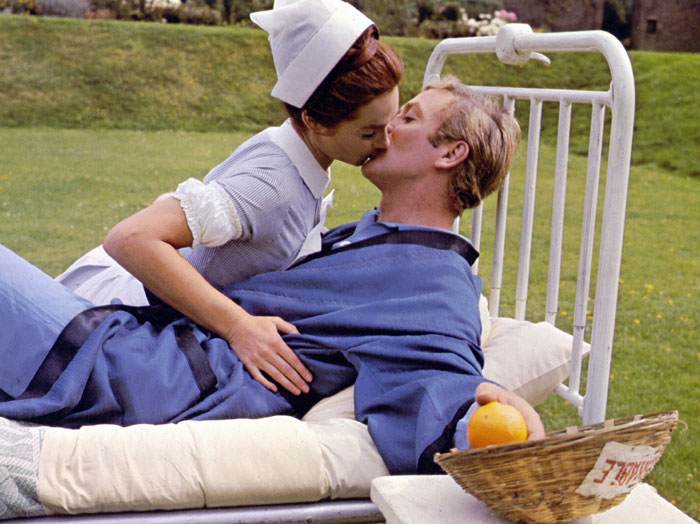
“Alfie,” not entirely surprising, follows a man by the name of Alfie. Played by a young Michael Caine, Alfie is from the working class of London and he thoroughly enjoys the physical company of women. He is a cockney version of Don Juan, and the film makes no effort to hide it. It’s a frank portrayal of a witty and charismatic – but also a slightly misogynistic – bachelor. The story has been told before, and even many times after, but somehow “Alfie” has managed to stand out and garner the love of critics through the years.
First and foremost, Caine is stellar in what is probably his breakthrough performance. His portrayal is mesmerizing, and with his quick wit and suave moves he fascinates, even though you might disagree with his character’s ways. Aside from the essential character of Alfie, the film also holds up because of its well-written and intelligent screenplay.
The script is based on a play by Bill Naughton, which is quite obvious. The dialogue is consistently sharp, the comedic timing is on point, and the character development of Alfie slowly creeps in on its audience. Because, in the end, Alfie of course has to realize what exactly the lifestyle he has led has cost him.
In the end, the film is more than “just” a witty and persuasive look at a ladies’ man’s sexual escapades; it’s also an honest and frank look at sex, as well as love. To sum it up, it’s truly a romantic comedy that succeeds in its quest: it’s funny, and it’s heartfelt.
8. Ordet (1955, The Word)
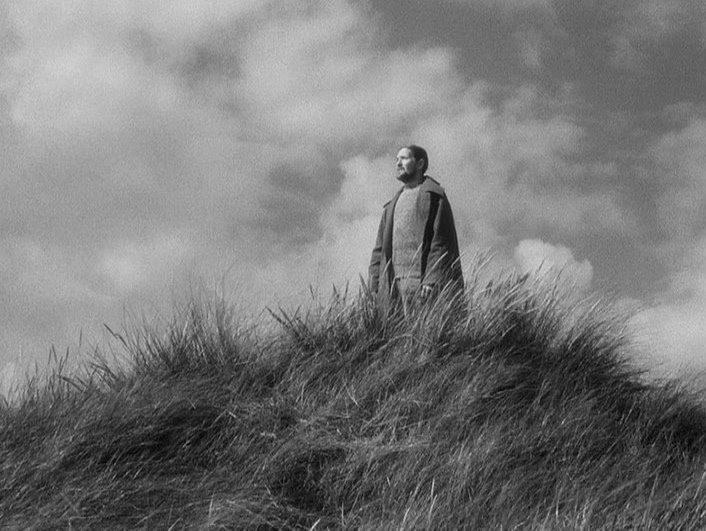
“Ordet” is a black-and-white Danish film from 1955 that deals with the subject of religion. It follows the story of a small Danish parish, and the owner of a large farm, Morten Borgen. One of Morten’s three sons, Johannes, has started showing signs of mental problems after his studies of philosopher Søren Kierkegaard, as he has become convinced that he himself is Jesus.
Furthermore, religious disputes among the different men in the family escalate until the pregnant Inger suddenly goes into a difficult labour and aborts her baby, and it seems that only a miracle will save her from death. All problems and intrigues are forgotten as the film builds to a highly poignant finale with a religious parallel.
The film is written and directed by accomplished director Carl Theodor Dreyer and was instantly recognized for its examination of faith, both of the internalized personal kind as well as the structured and organized form. It also garnered praise internationally, and although it’s rather quiet and slow-building with a depiction of a society far away from the one we live in today, the discussion of faith and Dreyer’s care for his characters have stood the test of time.
The story does take place in a confined place, but the search for meaning and the emotional struggles the family goes through individually and together have no constraints, which makes it a highly intense and riveting experience every time you watch it.
7. Take Out (2004)
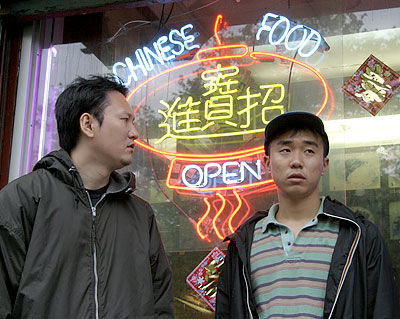
“Take Out” might be one of the lesser-known additions to this list, and thus it’s also especially interesting. Maybe it’s because of the fact that although “Take Out” is an independent film with almost as low a budget as any film can get, and without any (at the time) previous ‘famous’ names attached to it, it has still reached and earned high praise and attention from critics, both at festivals and on Rotten Tomatoes.
The film depicts a day in the life of illegal immigrant Ming Ding, who works as a deliveryman for a Chinese takeout place in Manhattan. The camera follows Ming as he goes around the city with deliveries, and it lets the viewer watch his intimidating encounters with a group of smugglers to whom he is indebted. The behind payments affect Ming deeply as he realizes that he has to work especially hard on this particular day, if he wishes to stay out of trouble.
The social-realist style of the film gives a very subtle but eye-opening perspective into the life of an underpaid and struggling immigrant deliveryman, set against the background of a New York neighbourhood where social and economic differences live right next to each other.
The film is also shot on digital video, which gives it a cinema vérité vibe that suits the story well. The fact that the film was shot in an actual takeout restaurant during working hours only underlines the effort and passion directors Shih-Ching Tsou and Sean Baker, as well as the rest of the crew, put into the making of the film.
At the heart of the film is a harsh but nuanced look at the world and culture of takeout food, tippers (and non-tippers), and the treatment of people trying to do their job. It’s socially conscious, but it’s also quite fresh in being so.
6. Cool Hand Luke (1967)
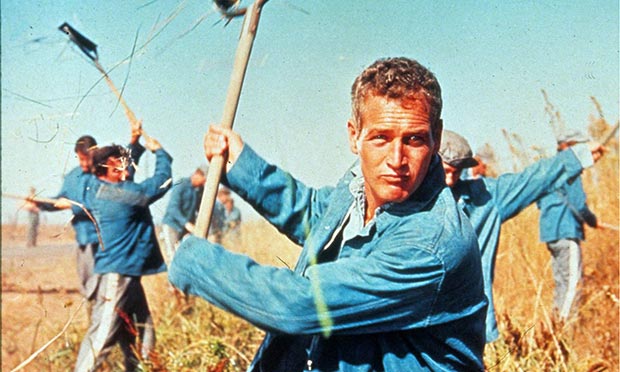
As far as titles go, this one is quite suitable, because Luke Jackson (Paul Newman) is essentially cool. Although he is also aloof and unable to conform to societal demands, Luke is the sort of character you just simply cannot take you eyes off of.
It’s not especially admirable how he gets arrested for drunkenly decapitating parking meters and afterwards is sentenced to two years in a prison farm, but what is so cool about him is the way he deals with the situation he has landed himself in. For Luke is a strong individual who, idolized by his fellow inmates and hated by his guards, won’t give up.
The film has a strong suit in the name of Paul Newman, who does a marvellous job as the lead actor, but it is also its depiction of a gritty and cutthroat environment with men of all kinds of personalities that makes the film stand out. It’s consistent in its expression, just as much as Luke is consistent in his calm attitude.
But Luke isn’t boring or cliché, for he is not just cool, brave, quick and handsome. Luke is also physically weaker than other men: he fails multiple attempts at escaping prison, and he isn’t necessarily happy. However, the reason he is such a great character and worth rooting for, is because in spite of all his weaknesses, he never gives up trying. Although a prisoner, he seems free.